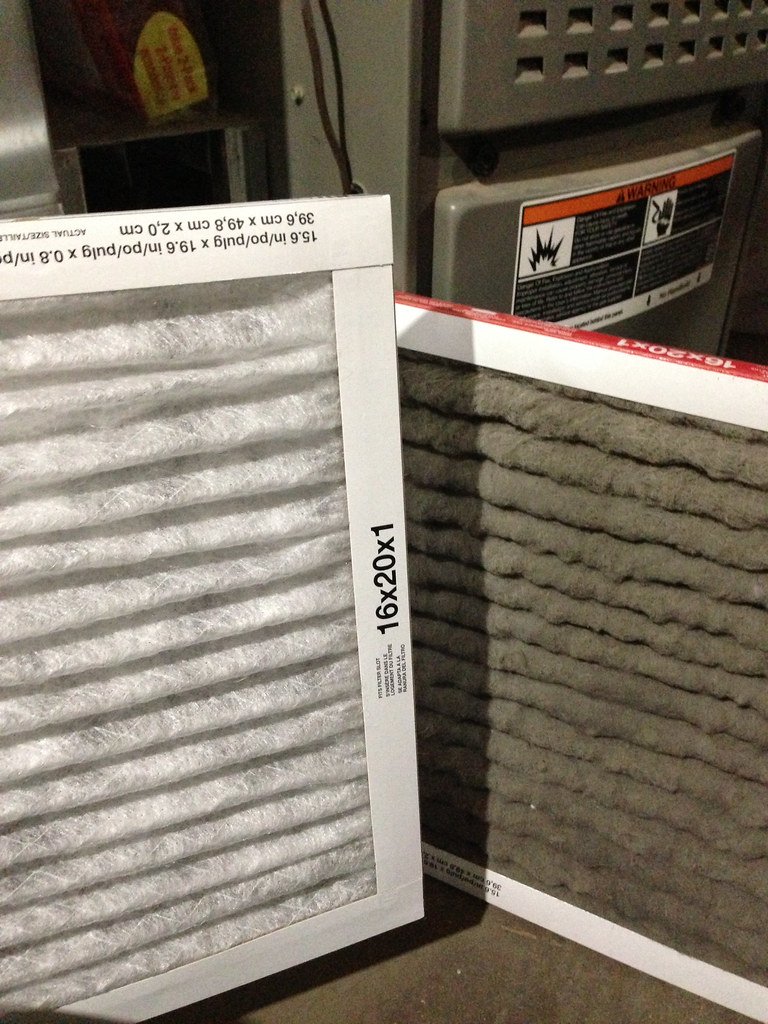What Does a Filter Do In a Furnace?
Have you ever noticed how the air quality in your home can impact your comfort? Imagine coming home to a cozy space, only to be met with stuffy air or a sneeze-inducing environment. One key element that influences this experience is the furnace filter. Have you checked yours lately? Keeping your furnace filter clean is key to a healthy home and helps your heating system run smoothly and efficiently. Let us explain how your furnace filter works and why its importance can make a significant difference in the air you breathe and the overall comfort of your home. Let’s go!
How Do Furnaces Work?
A forced-air furnace operates by pulling in air from your home, heating it, and then distributing that warm air through ducts. This process is similar to how cooling systems work, where air is chilled instead. But the effectiveness of this system heavily relies on clean and functional filters.
What Do Furnace Filters Do?
Furnace filters serve a vital purpose: they protect the blower fan from dust and debris while improving indoor air quality. However, they aren’t designed to clean the air completely. Keeping your filters clean is essential for the smooth operation of your furnace. Regular changes or cleanings can prevent malfunctions and ensure that your heating system runs efficiently.
Furnace filters come with a rating system called the Minimum Efficiency Reporting Value (MERV), which ranges from 1 to 16. A higher rating means that a filter can capture more particles, but it may also restrict airflow, putting extra strain on your furnace. Most homes do well with filters rated between 8 and 11. Always check your furnace manual to find the recommended MERV rating for your specific model.
Functions and Lifespan of Furnace Filters
The main job of a furnace filter is to clean the heated air before it circulates throughout your home. Just like air conditioning filters, furnace filters clear out a variety of contaminants. They help ensure that your heating system runs cleanly and efficiently, preventing clogs and protecting the furnace from harmful airborne particles and debris.
The thickness of your furnace filter can significantly affect how long it lasts. If you have a filter that’s 1 to 2 inches thick, it’s best to replace or clean it every one to three months. Thicker filters, around 3 to 4 inches, can last up to nine months before needing replacement. If you have a 6-inch filter, it can hold out for up to a whole year.
Types of Filters
Pleated Filters: These are common and effective. Made of paper and polyester, they come in various sizes and are disposable.
Fiberglass Filters: The cheapest option, but less efficient. They require more frequent changes.
Permanent Filters: These can be reused and are effective, but they need regular cleaning to maintain performance.
Electrostatic Filters: Available in both disposable and washable forms, these filters attract and trap smaller particles.
Filters come in different sizes, usually ranging from 1" to 4" in thickness. Always verify the size by checking the old filter or consulting your furnace manual. A correctly sized filter ensures optimal airflow and efficiency.
How to Replace Filters
Replacing a furnace filter is a straightforward task. Start by turning off the furnace, then remove the old filter and insert the new one, making sure it’s facing the right direction for airflow. Disposable filters should be checked and replaced every 90 days, while reusable filters need regular cleaning.
Turn off your furnace to ensure safety.
Remove the old filter, making a note of how it was positioned.
Insert the new filter, ensuring it’s facing the correct direction (look for arrows on the filter).
Turn the furnace back on and enjoy the benefits of clean, filtered air.
If you’re unsure about the process, don’t hesitate to reach out to a professional HVAC technician for help.
Why regular filter maintenance is important?
Many homeowners understand the necessity of changing their furnace filters regularly. However, neglecting this task can lead to a host of problems. A clogged filter restricts airflow, causing the furnace to work harder than necessary. This not only increases energy bills but can also lead to overheating and costly repairs.
If you're unsure about the type of filter you need or how to change it, don't hesitate to reach out to a professional HVAC technician. They can help you choose the right filter and set up a maintenance schedule that keeps your heating system running smoothly.
See why it’s importsnt to have regular HVAC system check-ups here
Let’s sum up!
Furnace filters play a critical role in maintaining the efficiency and longevity of your heating system. By understanding their purpose, selecting the right type, and keeping up with regular maintenance, you can enjoy a warm, comfortable home while ensuring clean air quality. So, as you prepare for the winter months, take a moment to check your furnace filter.
If you notice any issues, don’t hesitate to contact ECM! We offer professional HVAC services, including furnace filter replacement and comprehensive maintenance plans tailored to keep your heating system running smoothly all winter long. So go ahead, take some time to relax — we’ll handle all the work to keep your home warm and comfortable!







